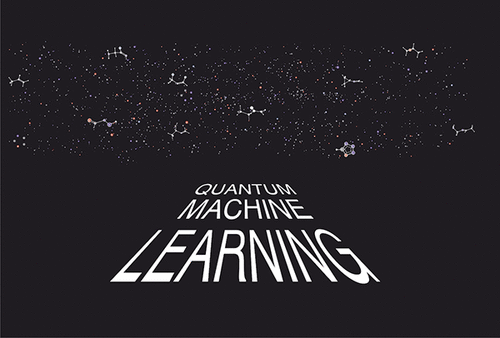当前位置:
X-MOL 学术
›
Chem. Rev.
›
论文详情
Our official English website, www.x-mol.net, welcomes your
feedback! (Note: you will need to create a separate account there.)
Ab Initio Machine Learning in Chemical Compound Space
Chemical Reviews ( IF 51.4 ) Pub Date : 2021-08-13 , DOI: 10.1021/acs.chemrev.0c01303 Bing Huang 1 , O Anatole von Lilienfeld 1, 2
Chemical Reviews ( IF 51.4 ) Pub Date : 2021-08-13 , DOI: 10.1021/acs.chemrev.0c01303 Bing Huang 1 , O Anatole von Lilienfeld 1, 2
Affiliation

|
Chemical compound space (CCS), the set of all theoretically conceivable combinations of chemical elements and (meta-)stable geometries that make up matter, is colossal. The first-principles based virtual sampling of this space, for example, in search of novel molecules or materials which exhibit desirable properties, is therefore prohibitive for all but the smallest subsets and simplest properties. We review studies aimed at tackling this challenge using modern machine learning techniques based on (i) synthetic data, typically generated using quantum mechanics based methods, and (ii) model architectures inspired by quantum mechanics. Such Quantum mechanics based Machine Learning (QML) approaches combine the numerical efficiency of statistical surrogate models with an ab initio view on matter. They rigorously reflect the underlying physics in order to reach universality and transferability across CCS. While state-of-the-art approximations to quantum problems impose severe computational bottlenecks, recent QML based developments indicate the possibility of substantial acceleration without sacrificing the predictive power of quantum mechanics.
中文翻译:

化合物空间中的从头算机器学习
化合物空间(CCS)是构成物质的化学元素和(亚)稳定几何形状的所有理论上可想象的组合的集合,是巨大的。因此,基于第一原理的该空间虚拟采样,例如,寻找表现出所需特性的新分子或材料,对于除最小子集和最简单特性之外的所有特性都是禁止的。我们回顾了旨在使用现代机器学习技术应对这一挑战的研究,这些技术基于(i)通常使用基于量子力学的方法生成的合成数据,以及(ii)受量子力学启发的模型架构。这种基于量子力学的机器学习(QML)方法将统计替代模型的数值效率与从头开始的物质观点结合起来。它们严格反映了基础物理学,以实现跨 CCS 的通用性和可转移性。虽然最先进的量子问题近似会带来严重的计算瓶颈,但最近基于 QML 的发展表明在不牺牲量子力学预测能力的情况下大幅加速的可能性。
更新日期:2021-08-25
中文翻译:

化合物空间中的从头算机器学习
化合物空间(CCS)是构成物质的化学元素和(亚)稳定几何形状的所有理论上可想象的组合的集合,是巨大的。因此,基于第一原理的该空间虚拟采样,例如,寻找表现出所需特性的新分子或材料,对于除最小子集和最简单特性之外的所有特性都是禁止的。我们回顾了旨在使用现代机器学习技术应对这一挑战的研究,这些技术基于(i)通常使用基于量子力学的方法生成的合成数据,以及(ii)受量子力学启发的模型架构。这种基于量子力学的机器学习(QML)方法将统计替代模型的数值效率与从头开始的物质观点结合起来。它们严格反映了基础物理学,以实现跨 CCS 的通用性和可转移性。虽然最先进的量子问题近似会带来严重的计算瓶颈,但最近基于 QML 的发展表明在不牺牲量子力学预测能力的情况下大幅加速的可能性。











































 京公网安备 11010802027423号
京公网安备 11010802027423号